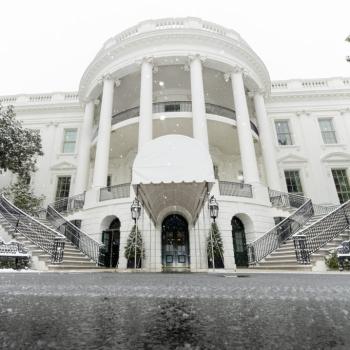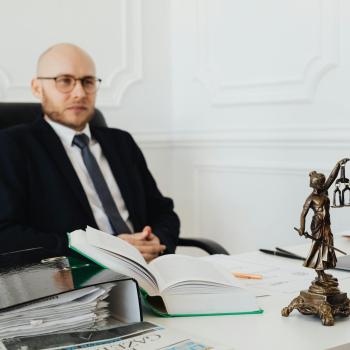
Women and men around the country will be choosing a gift for their sweetheart for this Valentine’s Day. Yet their shopping decisions will be driven by gendered decision-making imperatives that powerfully influence their buying choices. They will both make bad decisions unless they take proactive steps to address problematic gender-based decision-making styles.
How We Make Our Buying Decisions.
Neither men nor women will realize how their own gender drives their shopping decisions. We tend to think that we’re rational decision makers and are always capable of making the wisest choice. However, research shows that decisions stem primarily from our feelings: our gut reactions and intuitions. After deciding with our emotions, we then backtrack and rationalize our decisions. We justify the decision to ourselves after the fact. Even worse, our gut reactions are not adapted for the modern world, but for the savanna environment. Scholars use the term “cognitive biases” for the faulty wiring in our minds that causes us to make poor decisions. Research has found more than 100 cognitive biases that cause us to make poor decisions. These mental blindspots will cause both men and women to make bad decisions in their Valentine’s Day shopping, but in different ways.Sexed Buying Decisions
You probably won’t find it surprising that research shows men are more risk blind than women. It’s also intriguing that according to research, moderate stressors cause men to become worse at assessing risks. However, the same levels of stress have been found to boost women’s abilities to assess risk and rewards. Similar findings have been found to be relevant to anxiety, where a moderate level of anxiety caused men, but not women, to take bad risks. That’s why many whose significant other identifies as a man might find themselves unpleasantly surprised on Valentine’s day. Gut reactions help explain why females take fewer risks compared to males: women expect less enjoyment and have a greater expectation of an unfavourable outcome. So if your significant other identifies as a woman, don’t be surprised if you get a safer, more conservative gift. In a different but related aspect of decision making, studies have shown that, on average, men feel less concerned about ethical behavior compared to women. For example, a woman is less likely to regard behavior in grey areas of information privacy as ethical than a man would. Women have stronger intentions to act ethically than men. A woman is more likely to act more ethically than a man in relationships, which is part of a broader tendency of women to care more about relationships than men. That’s part of why women are more likely to remember about Valentine’s Day, anniversaries, and birthdays than men. These different approaches explain why male shoppers have a tendency to look for a product that is “good enough.” By contrast, women would rather look for the perfect product, making that extra effort to ensure they are getting the best. So women’s Valentine’s Day gifts will tend to be more thoughtful and appropriate than men’s gifts. It’s intriguing that research has shown similar patterns of shopping behavior in other cultures. Keeping the said similarities in mind, we can be confident that our genes, rather than our cultural upbringing, are in large part responsible for gender differences in shopping styles.Optimizing Buying Decisions for Men and Women
Due to particular decision-making styles, both men and women can make poor shopping decisions. For example, men take too many risks and purchase the first thing they perceive as good enough, even if it does not turn out to be so. Women make bad shopping decisions as well, as they take too long hunting for bargains, wasting their time. Fortunately we can use research-based strategies to notice cognitive biases and overcome these mental blindspots. This Valentine’s Day, it would be beneficial to women to act a bit more like men when shopping, by taking less time even when they feel driven to go the extra mile and looking for a “good enough” present instead of the perfect one. And live a little by taking a risk with a risque gift. Men would make wiser decisions if they worked more to emulate women, by going beyond what their gut reactions tell them. Try harder to look for a better gift rather than settling on the first thing you find that seems like it won’t result in you sleeping on the couch. Tone down the risque nature of your impulses and make it less surprising than you feel you should. Research has been done about resisting gender preferences when shopping. People who have a more egalitarian gender attitude can behave like the other gender while making shopping decisions. The important thing is to know when you’re probably going to make a bad decision. Train yourself to notice when your gut reactions are about to push you into making those poor decisions. Then, go against your intuition so that you can adapt the pattern of the other gender, to avoid cognitive biases common to yours. Train yourself so that you can recognize when you’re about to make a bad shopping decision, then shop smarter despite what your gut is telling you, to make the best decisions this Valentine’s Day.Key Takeaway
When it comes to shopping, men tend to take more risks, while women prefer to take their time to get the best possible deal. Both genders are prone to mistakes. However, you can train your mind to make the wisest shopping decisions this Valentine’s Day. –> Click to tweet
Questions to Consider (please share your thoughts in the comments section)
- When was the last time you made a bad shopping decision?
- Is there anything in the article that will help you make better shopping choices?
- Which next steps will you take based on reading this article?
Originally published at Disaster Avoidance Experts on February 13, 2020.














